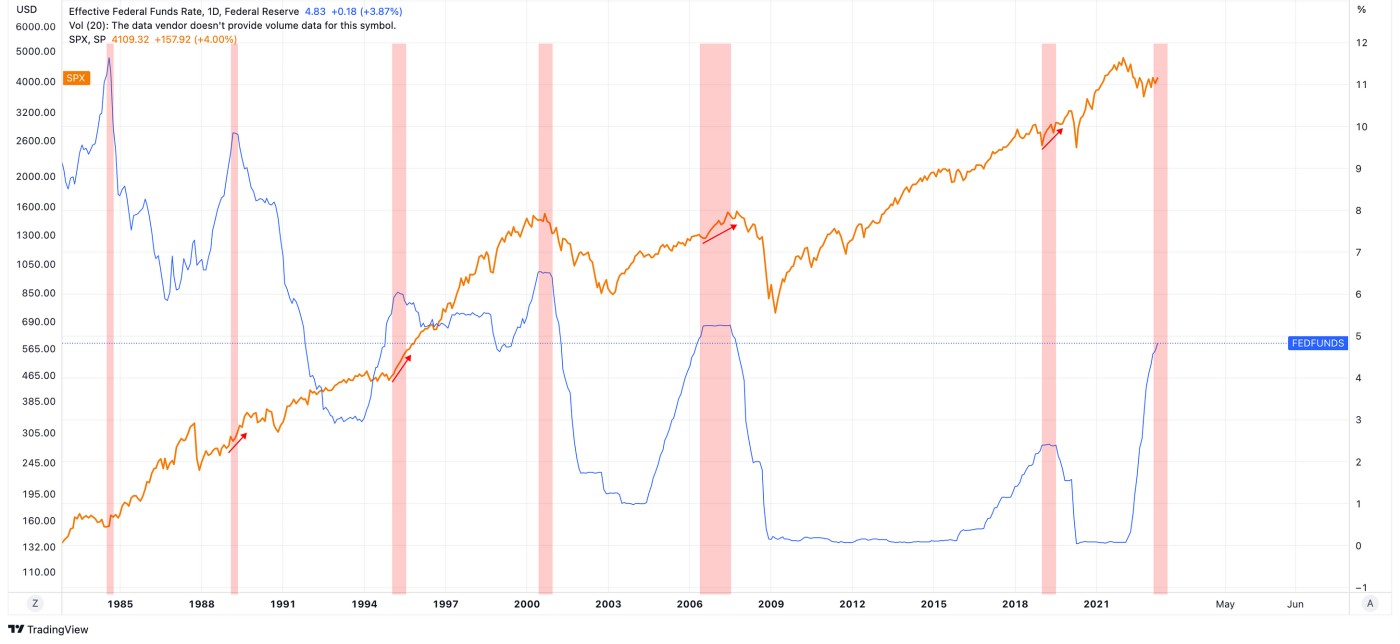by Dr. Chris Kacher
NFT Tallinn - Major points on crypto regulation, markets, and AI
Regulation
My friend and fellow Web3 Chamber board member Sander Gansen who created the largest event in northern and eastern Europe, NFT Tallinn, attracted the largest crypto influencers such as Bitboy Crypto (1.7 mil subscribers YouTube), Wendy O, William Entriken (created NFTs via ERC-721), et al. We were invited to attend a private policymakers roundtable where we met with regulators to help shape blockchain/crypto/web3 policy in the EU.
All the discussion however may be futile since the US is already debanking crypto companies via Operation Chokepoint. The UK and the EU may follow. This would be the first time since Bitcoin was created that the major western nations are realizing the threat of Bitcoin/crypto that can derail their control of their respective fiat currencies. Capital controls are nothing new. During World War 2, nearly all governments had strict capital controls on how much fiat was allowed to be moved outside and within a country. The US seized people's gold in 1933. Balaji Srinivasan wrote that they will seize Bitcoin.
So while central bank digital currencies (CBDCs) will be launched over the next year or two which will enable strict capital controls, interest rates set based on one's social and financial credit scores, and eventually a cashless society, much as everyone in China uses WeChat to make payments, it is not the end for crypto. Far from it.
While developing nations with crashing currencies such as Venezuela have laws that imprison anyone who transacts in Bitcoin, it hasnt stopped millions of Venezuelan families from converting their native currency into Bitcoin. But in western nations, most probably would stop using Bitcoin where conditions are not nearly as dire. This could set back blockchain/Web3 technology, but since there will always be welcoming countries that recognize its massive utility and efficiency over traditional systems, the tech would simply migrate out of western countries that chose to overregulate, restrict, or ban the tech. As Jeff Goldblum in Jurassic Park once famously said, "Nature finds a way." I say tech finds a way. Government regulations, restrictions, and bans are no match for innovative minds, especially when it comes to bleeding edge technologies such as blockchain and AI that are evolving at beyond exponential speeds.
We have seen this happen in China who banned ICOs then Bitcoin miners. The miners relocated to friendly jurisdictions such that within a few months, they were back at full operational capacity.
We can go back to the days of peer-to-peer (p2p) illegal file sharing in the days of Napster in the mid-1990s. For every Pirate's Bay the US courts shut off, ten new ones sprung to life. The userbase climbed to over 100 million over the years despite billions of taxpayer dollars spent to fight illegal p2p file sharing.
While the Pirate's Bay front ends could be shut off, there is a new method of decentralizing the front ends of blockchain hyperstructures such as Uniswap so they cant be shut off. Indeed, tech finds a way.
Going forward, I believe major countries will play chess with each other. While the US is debanking crypto, China offered its own banks to support crypto businesses unable to operate without their banks, despite China's anti-crypto stance over the years. Certainly, no country wants to get left behind, but at the same time, no government wants to give up its control of fiat to Bitcoin or prevailing crypto technologies.
Markets
When I gave my talk, I was supercharged by the packed audience with their insightful questions. But since late 2021, we've had to be the bearer of bad news when it comes to bull markets. At least many on our website www.selfishinvesting.com went to cash or shorted starting in early 2022 based on our reports. But the current dead bat bounce so far this year is due to global M2 in January out of China, then the QE injection starting March 12 in crypto and stocks due to the SVB disaster. That said, we expect more dominoes to fall due to high bond exposure in pensions, IRAs, and commercial real estate. Bonds which are normally low risk only become risky when the Fed hikes rates as fast as they have done from rates at near zero levels. In consequence, the recession could be equivalent or worse than what we had in 2008 due to record levels of debt, interest rates that hit record lows, and sticky inflation due to supply chain disruptions as well as unfree, moated markets in healthcare, education, and housing.
AI
ChatGPT has evolved into countless iterations that affect most other platforms and apps in the digital world. The pace of evolution is beyond exponential. It took just 5 days after launch to reach 1 million users. Nothing in tech even comes close. We will be watching possibilities in this space in stocks and crypto though at present, the hype may exceed the reality so prices can get ahead of themselves much as we have seen in the cryptospace with companies such as FET and AGIX.
Nevertheless, one wonders what higher evolutions of future ChatGPTs will do. AGI and ASI (artificial super intelligence) will likely come much sooner than predicted. One thought I shared that was well received was why not create a ChatGPT modeled after top minds such as Ray Dalio and Naval Ravikant. Both tend to sidestep "wokeness" and bias while researching and studying a controversial and complicated topic as deeply as possible. I call this understanding level 10/10. Most dont have the time or the bandwidth to go that deep in their understanding. Dalio's study of history going back a millenium to understand economic and financial cycles sheds much light on how and why history rhymes when it comes to booms, busts, debt cycles, war, and the rise and fall of sovereign fiat currencies. Why not train an AI to approach all topics in a similar manner? Of course, this is getting into the domain of a much more sophisticated AI. But at the pace of progress, perhaps this can be achieved in less than a generation.
I was asked how science can benefit from Web3. Decentralized science (DeSci) can be built across DAOs where various participants contribute results much as is done with scientific journal articles today. DeSci changes how research is funded while shifting ownership and value away from centralized intermediaries such as governments and institutions. Smart contracts can be used to mediate in p2p fashion between authors and peer reviewers while sidestepping the traditional academic publishing industry. Blockchain can be used to record truths, distortions, and misses. I also shared my TruthDAO idea which could make any publication strive to be as honest as possible. I wrote about how blockchain can make reporting truths economic HERE. While science is more immune to such deceptions and distortions, a similar scoring system could be used. Reputation scores could be included for anyone who wishes to contribute to the science, act as a peer reviewer, or as an investor.
Ultimately, despite the challenging environment with bear markets, intentionally onerous regulations, and a major recession on the way, building continues across these cutting edge technologies. Transformational advances are inevitable as humanity continues to climb various S-curves. The opportunities to make lifechanging impact and wealth have never been more abundant.
Macro pictureJust as the saying stocks take the stairs up but the elevator down, the same could be said for interest rates. In past cycles, rates would ratchet up slowly then once the Fed halted hikes, they typically overdid the tightening cycle so had to scramble to lower rates in a hurry as recession hit making markets tumble into prolonged bear markets.
This time, rates have soared from near 0% to 5% in record time. Bonds are normally risk-off, ie, low risk instruments so banks, pension funds, IRAs, and the like have high exposure to bonds. But when rates get hiked so fast, bonds lose big. That Powell said in his testimony that the US banking system is 'sound and resilient' despite 3 of the largest bank failures in history proves he will lie to prevent people from panicking.
When rates pause (the Fed pivot), major stock market averages often rally but when the Fed is eventually forced to lower rates due to signs of recession, markets tumble.

When the 2-yr Treasury rates move higher, stocks, BTC, and gold tend to fall due to tightening. The CPI print was below estimates by just 0.1% while core CPI matched estimates. Stock and crypto markets jumped then fell then rebounded like a decapitated chicken. But this is mostly noise.
Commercial real estate
We talk of black swans of an economic nature forcing the Fed to print trillions again. Commercial real estate may be the next domino to fall. Back in 2008, default rates rose to 9%, up from 1%, as interest rates rose. Today, the damage to commercial real estate loans which total about $2.7 trillion could be far greater. Over 40% of the US work force now works remotely since May 2020. The decline in demand for commercial properties has worsened by recent tech layoffs. The value of office sector REITs have fallen by about 55% which translates into a 33% reduction in the value of office buildings. The default rate of between 10-20% in commercial real estate which was the lower end seen during the worst of 2008 would result in about $80-160 billion in additional bank losses. This would be ruinous for hundreds of smaller and midsize regional banks that have already been weakened by higher interest rates. The 2008 financial crisis spread from the housing sector to the rest of the economy as large banks with exposure to housing took tremendous losses.
Today, the Fed has created a moral hazard in guaranteeing depositors. Bank executives may take bigger risks if they believe the Fed will step in to protect depositors.
